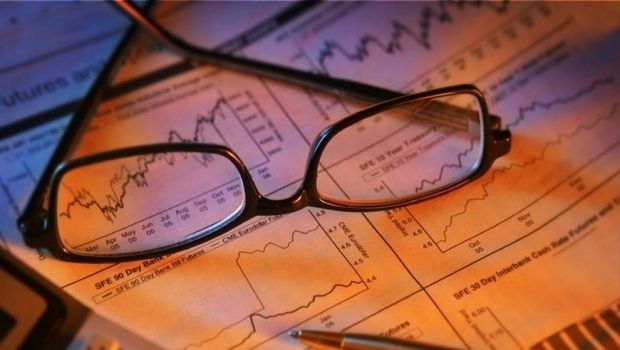
Week’s balance: attack on Cabinet, Kyoto scam, and purging Customs
The increased opposition between the Rada and the Cabinet, the scam with Kyoto funding, worsening forecasts of Ukraine’s economic growth, waiting for the assistance from creditors, and further fall of the hryvnia - these are the main economic news of the past week.
The demands for the government's resignation were voiced with more vigor last week. The traditional enemies of Arseniy Yatsenyuk’s Cabinet - the Radical Party faction led by Oleh Lyashko and the Batkivshchnyna of Yulia Tymoshenko were joined by another two political forces - the pro-presidential BPP and the Samopomich faction. The latter even resorted to recalling its nominee in the government the Agrarian Minister Oleksiy Pavlenko – in order to accelerate Cabinet dismissal.
"I was struck by the statement of the political council of the Samopomich Party because the party has always appreciated the work of my team. No consultations have been held with me on this issue. I am not a member of any political party and I am no part of any party authority," Pavlenko wrote on Facebook.
In the middle of last week, the Samopomich issued a statement confirming that it persuaded Pavlenko to go following many hours of consultations. On January 29, Pavlenko posted on Facebook that he had written a letter of resignation, which now has to be considered by the Rada.
But the question of the whole government’s resignation has stalled by the weekend. One thing is clear. On February 16, the Cabinet of Ministers is to report to Parliament. And then, either there will be point reshuffles given plenty of vacancies, or the prime minister will resign, followed by a re-election to of the Verkhovna Rada, which may be held in autumn 2016.
Apparently, the business and Ukraine’s foreign partners are far from being enthusiastic about what’s been going on lately. For example, the EBRD director for Ukraine Sevki Acuner urged the Ukrainian authorities not to allow politics to prevail over economic stability reached in 2015.
A similar statement was made by the head of the American Chamber of Commerce in Ukraine, Andy Hunder. According to him, the Ukrainian business and foreign companies operating in Ukraine are waiting for real economic growth in Ukraine in 2016, as well as effective fight against corruption, not political strife.
Kyoto money scam
The government was not only the focus of political opposition last week, but also of a corruption scandal. However, the scandal itself was initiated by the prime minister, who accused the acting Minister of Ecology and Natural Resources, Serhiy Kurykin, of involvement in failing to complete a tender for the allocation of nearly UAH 500 mln of the Kyoto Protocol funding.
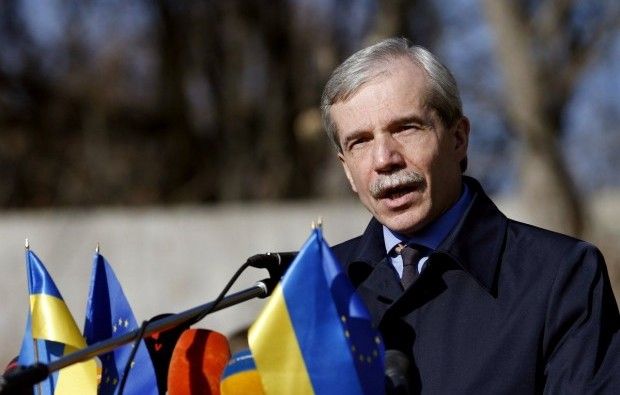
As UNIAN reported earlier, the funds provided by the Government of Japan, were to be spent on the purchase of outdoor LED-lighting for a number of Ukrainian cities. The prime minister claimed that this tender was won by a company with signs of fictitiousness. According to Yatsenyuk, the winner - Agrotekhbud - has changed its management right before the tender, with some Donetsk resident becoming its director. Active commercial activity of the company was limited to the purchase of a single fan for UAH 13,000.
"Had we not responded quickly, this UAH 550 million would go to a fictitious company, in accordance with the tender, then it would’ve been converted into cash and simply stolen from the state budget," said Yatsenyuk at a Cabinet meeting.
As a result, members of the government decided to dismiss Kurykin and several ministry officials, submitting all the materials on the matter to the police.
The forecasts. Less optimism…
The talk about the growth of the Ukrainian economy in 2016 was replaced last week with a less optimistic outlook. Now the government is talking about the potential worsening of the expected results.
The Finance Ministry announced the first revision of Ukraine’s macro-economic indicators of Ukraine economy’s development. According to the ministry led by Natalie Jaresko, this measure was taken as a response to the shifts changes in key commodity markets, including that of oil, metallurgy and agricultural products.
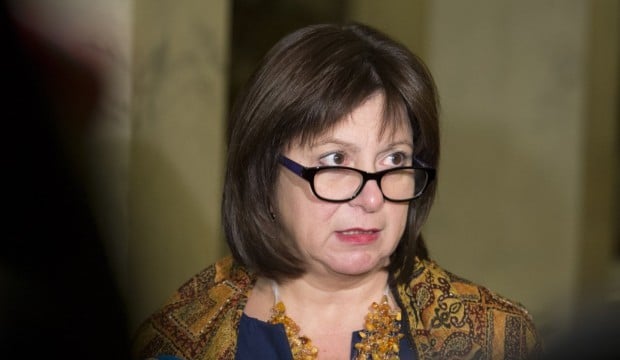
"We are working out together with the Ministry of Economic Development, the National Bank, and the IMF our vision on macroeconomic changes. The change in the oil price is a big plus. But we also see a fall in prices of metals and agricultural products is a minus for Ukraine. We are re-evaluating everything, we will prepare for the revision. We are now in the process," said Jaresko.
Minister of Economic Development and Trade Aivaras Abromavicius has later explained that, although the main macroeconomic indicators of Ukraine will be revised, there is no collapse expected in the country’s economy. According to the minister, worsened results of the Ukrainian economy are a consequence of global recession.
"I Went to Davos [to the International Economic Forum], and I was very concerned about the state of the global economy. The Cabinet is very much concerned about the state of the global economy, we have discussed it. Everything is bad everywhere, commodity prices are falling: steel, fertilizer, grain, not to mention the oil. But I went there and saw that the world economy will grow this year, anyway, by 3.5-3.6%," said Abromavicius.
Only the NBU has presented its forecast. According to estimates of the financial regulator, the economic growth in Ukraine will be reduced to 1.1% from 2.4% projected earlier. At the same time the National Bank improved its estimate of the fall in GDP in 2015 - to 10.5% from 11.6%.
As the NBU explained, in addition to the already mentioned factors, the decline was a result of the introduction by the Russian Federation of restrictions in trade with Ukraine, as well as a ban on the transit of Ukrainian goods through the Russian territory.
Meanwhile, the regulator predicts a 3% economic growth in 2017.
Waiting for assistance from the West
There was also positive news last week. According to Jaresko, Ukraine expects $10 bln in aid in 2016 from the country’s key creditors, including $5.8 bln in IMF loans.
"We expect about $10 billion this year from the external creditors. Nearly $5.8 mln from the IMF, $1 bln from the U.S. Government, up to $1.3 bln from the Government of Japan, $0.2 bln from Switzerland, EUR 1.2 bln from the EU, plus an additional EUR 170 million in grants," Jaresko said.
"EUR 100 mln from the Government of Poland, EUR 300 mln from Germany plus EUR 150 million for investment projects. $177 mln from from EBRD for the existing investment projects plus $1.1 billion for the new investment projects; $175 mln from EIB for existing projects plus $1.1. in investments in the new projects. $210 mln is expected from World Bank for existing investment projects and another $1.5 billion in new loans," she said.
However, the hryvnia has ignored good news. The national currency continued its fall.
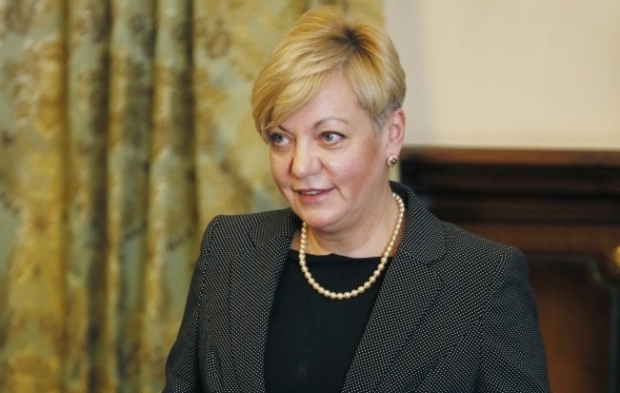
"The situation on the currency market is more or less stable. The exchange rate today is at UAH 25-25,2 to the dollar. For the third consecutive day, the National Bank does not intervene in the interbank foreign exchange market. The market itself finds a balance between supply and demand," NBU Governor Valeriya Gontareva said.
According to Gontareva, the reasons for instability of the national currency are both seasonal and fundamental factors. The head of the regulator believes that the seasonal factors are fluctuations due to an imbalance of supply and demand linked to the long New Year holidays. Among the fundamental factors are the deterioration of the external environment, the decline of quotations on commodity markets and increased Fed rate in the United States.
News from the "gas front"
Minister of Energy and Coal Industry Volodymyr Demchyshyn said Ukraine plans to reduce imports of natural gas in 2016 by 20-30% as compared to 2015, down to 11-13 billion cubic meters from 16.4 bcm, importing exclusively from the EU.
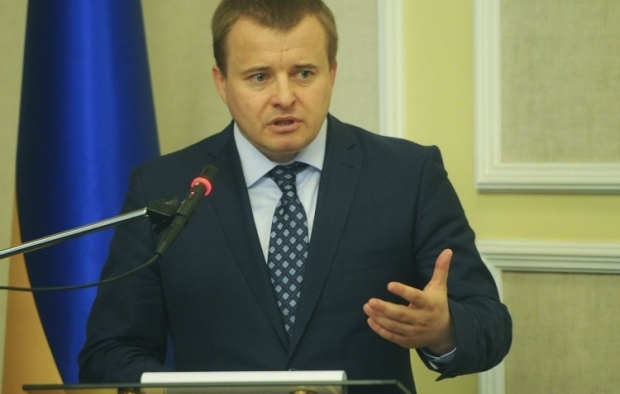
He also stressed that today Ukraine has enough gas in storage. "11.2 billion cubic meters [of gas] is now in storage. This is 2 billion [cubic meters] more than in the same period last year," said Demchyshyn.
In addition to the reduction in imports, a 15% reduction in gas consumption is also expected this year, as reported by Serhiy Savchuk, head of the State Agency for Energy Efficiency.
Meanwhile, Finance Minister Natalie Jaresko said that Ukraine has sufficient financial resources for the purchase of gas for the next heating season and is able to obtain from the international financial institutions up to $1 billion for the purchase of fuel from European suppliers.
"Thus, for the first time in the history of the state, we have the resources to buy gas at the lowest prices out of season and pump the required amount [into the storage]," said Jaresko.
With regard to the price of Russian gas transit, Ukraine has no chance to raise tariffs today. "Now we have no basis to [write a new bill to Russia] with the new tariffs, because the [new] deal has not been signed. We are working under the contracts that exist," Demchyshyn said.
It is worth noting that the term of the contract for gas transit expires only in 2019. So the Russian side will be ignoring Ukraine’s demands for the 50% increase in tariffs for gas transit for the next few years.
Purging the Customs
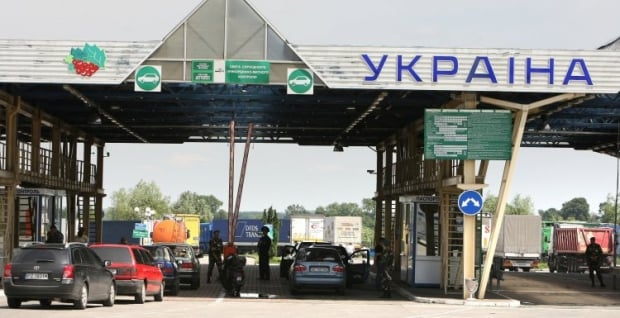
The issue of purging the Ukrainian customs suddenly came afloat last week. First of all, the Minister of Finance instructed the chief of the State Fiscal Service, Roman Nasirov, to conduct an audit of Customs to identify risky operations in 2015 and early 2016, as well as to prosecute officials involved in corruption in customs clearance.
"We have started receiving an increasing number of complaints recently from deputies and businesses about ongoing smuggling through the simplified system of customs clearance," said Jaresko.
According to the minister, the simplified system has been applied too often lately, with the volume of products cleared under this procedure almost doubling - to $21.1 billion from $12.2 billion.
"There is information that some customs officers allow clearance of goods which were not designed to be cleared through the simplified procedure, as they had fallen under the risk assessment protocol,” said Jaresko. “In this regard, I order the SFS chief, Roman Nasirov, to take necessary measures, audit all operations under the simplified procedure, conducted between 2015 and January 2016. It is necessary to identify the officers who took wrongful decisions and bring them to justice. Internal investigations must be conducted regarding all identified violations."
In addition, the finance minister also announced readiness to present draft tender competition documentation for management of several Ukrainian customs offices on February 3, 2016.
According to the authorities’ statement made back in the summer of 2015, it will affect the Zakarpattia, Lviv, Volyn and Chernivtsi Customs offices. The main goal is to make them more efficient and non-corrupt.
Vladyslav Shvets (UNIAN)

